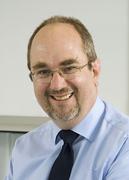What route has your career taken to get you where you are today?
Sometime after I started as a Lecturer in Anatomy in Newcastle in 1983 I realised that I had a passion for teaching. The teaching I was delivering seemed to be appreciated and so gradually, and at first without a definite plan, I found myself concentrating on teaching and taking on roles, as many of us do, contributing to the development of the learning and teaching agenda of the University both at Faculty and University level. So, just to highlight three of those roles I became DPD for the B Med Sci degree then the route to intercalation for MB BS and BDS students, Director of PG(T) programmes for FMS and then Faculty Liaison Officer for the PG Cert (now CASAP) programme for the University. Another important external role happened essentially by chance when I was elected to Anatomical Society Council for after quite a short interval I was then, as a consequence, invited to become Hon Education Officer for the Society serving for nine years. This opened up a variety of opportunities to develop my national and international profile while at the same time enabled me to bring back to the University ideas for developing student learning and teaching in anatomy. These internal and external roles provided the platform for a successful claim for a National Teaching Fellowship which I was awarded in 2007. Ultimately though while I have planned a career path in teaching to an extent it has also been the case that some opportunities opened up in unexpected and serendipitous ways and it has been important to identify and take advantage of those as they occurred.
What do you find most challenging about working in HE learning and teaching?
The sector as a whole continues to grapple with rewarding teaching equally alongside research. It seems to me that in rewarding teaching we are saying that it is of value. This an important means to increases the self-esteem of teaching staff which in turn we can then see reflected in personal practice. By this means we all win, students, staff and the institution.
What’s the best thing you’ve been involved in since you started working with Newcastle University?
I would identify two things. Undoubtedly the award of the National Teaching Fellowship and joining a community of practice that includes many creative and original thinkers has provided a number of opportunities for further work since 2007 including the HEA-funded Promoting Teaching project. I also count myself privileged to be able to teach some of the most able and lively young people who are our students and who are a constant source of energy and creativity.
What’s the wisest piece of advice you’ve received from a mentor or colleague?
I started out as a physiologist and I am going to choose some advice given to me by two physiologists; one serious, one less so. Many of my physiology colleagues will remember Joe Lamb who died recently. It was at a Physiological Society Dinner that he told the assembled diners never to cross the campus of the University without a piece of paper in your hand. It meant you would always appear to be on university business even if you were simply off to Sainsbury’s to buy some sausages for tea. The second piece of advice came from my PhD supervisor Tim Biscoe. He said that as a teacher the thing you should never do is mislead your students. Intellectual honesty seems to me to be absolutely crucial to everything we do and being clear to your students when you do not have an answer to a question is a key starting place.
What’s your top educational research interest
At the moment I am provoked by questions about the importance of knowledge in our teaching and how we make decisions about what to teach. These are ideas that we can trace back to Dewey via Brunner and Stenhouse. This has led me to the ideas surrounding threshold concepts and the work of Ray Land and which I think I am going to approach through the ideas of Lee Shulman and his ideas of signature pedagogies. Of course I have ongoing interests in rewarding and recognising teaching achievement that I continue to pursue.
If you could have dinner with 3 famous people from history who would they be?
This is so difficult and where does one start? I think Virginia Woolf would have to be high on the list for me. Her writing whether in the novels, diaries or letters is a constant source of stimulation. Gustav Holst would be another choice. His combining of a creative life with that of a teacher seems to be a balancing act many of us seek to achieve. His riposte to George Bernard Shaw also places him high in my estimation. Holst said “those who can do, those who teach also do, teaching is doing, teaching is an art”. Then finally John Dewey because reading his work is to see presaged and discussed many of the issues we are still grappling with. I am not sure though that I would want to invite all at the same time

